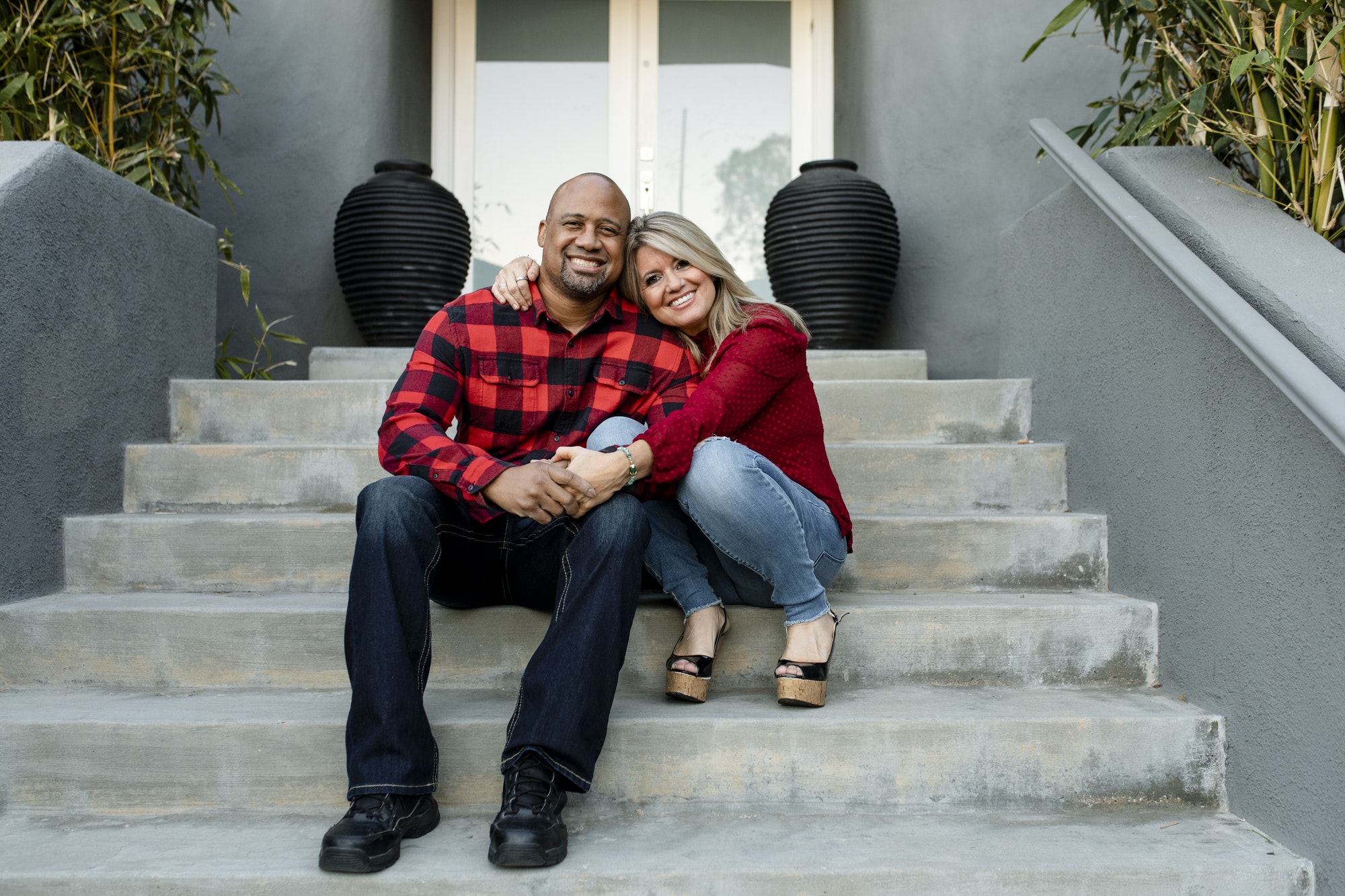

One of the most common problems that people encounter in romantic relationships is the presence of codependency. This is a word that we often hear, but many of us don’t really know the precise answer to “What is codependency.”
We know it’s bad and it’s an undesirable trait in healthy relationships, but what exactly does it look like? What are the signs of it? Is there a way to get rid of it and can a person undo the damage?
These are all valid questions but I am asked about this multiple times each week by people I work with, either in my one on one coaching sessions, or in the comments section below my videos and articles.
Today’s article is going to explore the actual definition of codependency, what codependent relationships look like, and how to deal with this type of love addiction, but I would also like to provide you with some tools to establish a more beneficial dynamic in your relationship.
Codependency is something that can be emotionally draining for both people involved in the relationship, so it’s very important to incorporate tools that will help you to develop the confidence needed in order to create more balance.
In turn, you and your partner will both experience more gratifying and fulfilling relationship with each other, free of un healthy or resentment emotions.
I was working with a client, Andreas, earlier today who was asking me about the definition of codependency. His girlfriend had told him that she needed space because she felt that he had become too codependent, so he reached out to me.
Getting a better understanding of what codependency means will help you to start working on getting rid of it. The first step is always defining the problem, and codependency is rooted in a lack of confidence. I will expand on this more in a moment, but first I’d like to go over the signs a person is codependent on their partner.
Codependency is rooted in the need to be needed. It’s not about enjoying being needed, or finding the notion to be sweet. Codependents have a deep need to be needed by their significant others.
Now, codependency can exist in other types of relationships as well, but today’s article will focus on codependency in romantic relationships between two partners.
So let’s take a look at some of the biggest indicators of codependency. This will help you to identify codependent behavior in yourself but also in your significant other.
Every single relationship requires balance, compromise and flexibility. The problem arises when one person does significantly more compromising than the other.
One of the best definitions of codependency is the continuous act of setting aside your thoughts and needs so that you can comply with someone in a position of power over you.
As I started to say above, co dependence usually comes from a low sense of self esteem. A person who is codependent will look outside of themselves for validation, and their sense of self-worth comes from being needed by someone. In some cases, they need to feel like the “caretaker.”
As a result they develop a disproportionate fear of asserting themselves in the relationship. This leads to them finding it very hard to say no to their significant other and they end up giving way more to their relationship.
Signs Of A Toxic Relationship | The Ultimate Guide To Escape Unhealthy Love!
The underlying fear in people struggling with a codependent personality is primarily that they will be abandoned if they do not act the way that their partner wants them to act. This definition of emotional dependency can be particularly dangerous if the person will do anything to hold onto a relationship, even if it is destructive.
If you are excessively compromising and doing things that you normally wouldn’t do because you’re trying to hold on to this relationship at any cost, or if you feel that the reward of the relationship is worth putting your health and safety at risk, then you’re facing one of the biggest codependent behavior examples.
The feeling of being unable to survive on your own without this relationship can cause you to grip onto it, and be prepared to do anything to preserve it. Setting boundaries is a crucial element of dealing with codependency, but I will expand on that in a moment.
In some of these cases, there are underlying issues of anxiety and depression that can lead to more amplified dependency. Many people will latch onto their relationship and make it the focal point of their lives because they designate it as the primary source of their happiness.
This can quickly turn into a negative spiral because it can make a person needy and clingy. They are seeking reassurance, they feel a sense of helplessness, they feel quite a bit of emotional pain, and as this type of behavior pushes their partner away, and they end up being needier and clear because they want the reassurance that much more.
When a person does not have a solid sense of happiness within themselves, it puts them at risk for becoming codependent on their significant other.
That said, not everyone who fits the definition of what codependency is struggles with anxiety or depression. Sometimes it stems from patterns that they have developed in their romantic relationships.
A good way to describe codependency is relying on your partner for complete basic or daily tasks, not wanting to ever spend any time apart, having a crippling fear of abandonment, feeling anxious when you don’t hear from them after not much time has passed, and the inability to function without them.
On the flip side of this, you may be feeling a lot of pressure to make sure that you can hold onto this relationship and might even be feeling a kind of relationship addiction. I often see this in people who have a hard time trusting themselves and have a deep-rooted fear that their significant other is going to give up on them and leave them.
Now, to clarify, it is totally normal to have emotional needs and want to avoid conflict in a relationship. In a relationship in which there is a lot of codependency, conflict is often handled in a very different way. A person who is codependent on their partner will feel the need to be in control of all the time and will therefore avoid conflict at any cost. They will steer clear of assertiveness, even if it is self destructive. So they will give in, do things they don’t want to do, and say things they wouldn’t normally say, because conflict creates a serious panic within them. They become lax on their personal boundaries, and bend to their partner’s will.
They worry that their partner will leave them if they are not meeting all of their needs and being exactly who they want them to be.
Another indicator of these behavioral patterns can be seen when a person takes on the role of being the person who fixes their partner. They feel that their only value in the relationship comes from being able to fix their significant other’s problem, and making sure that everything in their partner’s life is okay. This makes the person feel like they are adding value to their partners life in a way that would keep them safe from being broken up with.
The moment they feel like their partner doesn’t need them, and that they can handle things fine on their own, a codependent person will start to panic.
The problem with trying to “fix someone” is that ongoing attempts to change or save a person only enables that person’s behavior, which brings me to my next point.
How To Save Your Marriage Alone | 5 Ways To Bring Love Back!
In my experience, codependent people often choose relationships with needy people, simply because this type of person makes it easy for them to feel needed.
For some people, these interpersonal relationships can actually turn into toxic relationships, and for others it just creates an imbalance that starts to damage the relationship. Either way, the foundation begins to crumble and it becomes very hard for the relationship to survive in a healthy way.
So if you are searching for the answer to “What is codependency in marriage or in relationships” to see if it is what you are experiencing, ask yourself this:
Is there anything that you are doing to make sure that your significant other needs you?
Do you have a hard time identifying your own feelings?
When you’re so used to being there for someone else and making it all about them, it’s not uncommon for a person to lose sight of who they are and what exactly they need.
Do you only feel important and valued in your relationship when your partner clearly expresses that they want and need you around?
If you’re answering yes to these questions, then you’re experiencing codependency traits.
I briefly started talking about this above, but in addition to making you feel uneasy and anxious in your relationship, it can started damage the dynamic between you and your significant other.
When a person begins to act needy and clingy in a relationship, which is typically what happens when a person is codependent, their partner will begin to crave space from them. It’ll become dangerously easy for your partner to start to feel smothered, feel unhappiness in the relationship, and maybe even develop narcissistic tendencies, and the natural dynamic between you will begin to change. Like I said, this is when you will begin to crave reassurance, which leads to more neediness, which in turn leads to your partner pulling away. The more they pull away, the more reassurance you will seek.
If you’re suffocating your partner and making them feel like you cannot exist without them, they will start to desire space from you, even if you aren’t trying to be manipulative.
But don’t panic! Space is actually the ideal thing for creating new dynamic between you. Sometimes the best solution is to put a little space between you so that you can make a stronger comeback!
It is really important to keep in mind that when someone stops presenting a exciting challenge, it becomes easy to take them for granted and lose interest. We often work with people who would like to get back together with ex partners, and this is one of the main concepts we go over with them.
The main solution for codependent behavior is reestablishing confidence and independence in your own life. One of the best ways to do this is to work with someone like me or a member of my team, who can help you get to the root of the problem and provide you with concrete advice and exercises to help you change these patterns. You don’t need a rescuer, you can heal this on your own with some guidance. It’s all about self care and changing habits in a healthy way.
As this article on what codependency is comes to a close, I would like to offer you some solutions that you can start implementing in your daily life.
The biggest thing you can do starting right now is to get busy. Your relationship should not be the center of your universe – there needs to be balance between your different “lives.” Your love life is not the only one you have. It’s important to think about your social life, your professional life, your family, etc.
Starting to prioritize people and activities that bring you joy (that are unrelated to your significant other). Start picking up old hobbies and passions, challenge yourself to work on personal and professional goals, spend ample time with your friends and family.
The goal is to fill up your schedule with things that make you feel joy. Now is it time to remind yourself of what you bring to the table and that you are able to make yourself happy. The moment your happiness begins to depend on another person, you do yourself a disservice and put unnecessary pressure where it does not need to be.
Join The Happily Committed Project and transform your relationship in a dignified and meaningful way. Together we can work on reaching your goal by providing you with a clear-cut action plan that has been tailor-made to fit your relationship, your situation, and your specific needs. We have created a product specifically designed to help you overcome codepedency and insecurity in a relationship. If you would like to access it, all you have to do is click here!
Wishing you the absolute best in life and love
Your coach when you are looking for the answer to “What is codependency,”

No spam, notifications only about news, events and updates.

“How long before moving in together?” This is a question I’ve been asked time and time again throughout my coaching sessions, and it’s no surprise!

A long time ago, he made a mistake that hurt you deeply. Your relationship was rocked by infidelity, but you put in the work to

Is your man dragging his feet when it comes to popping the question? In your mind, your relationship has long been ready for marriage, but

During my time as a love and relationship expert here at Happily Committed, I’ve seen every kind of relationship you can imagine. Everyone who comes